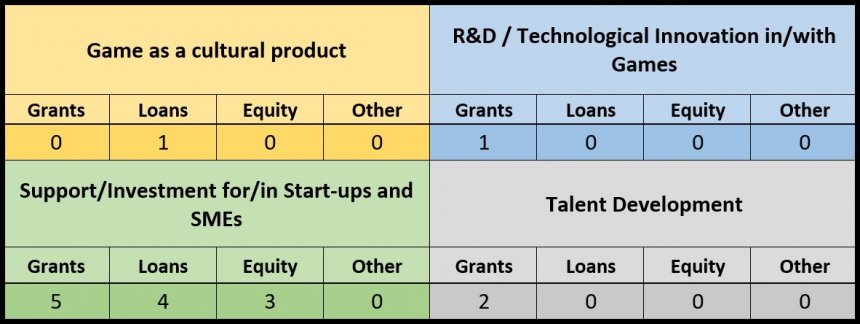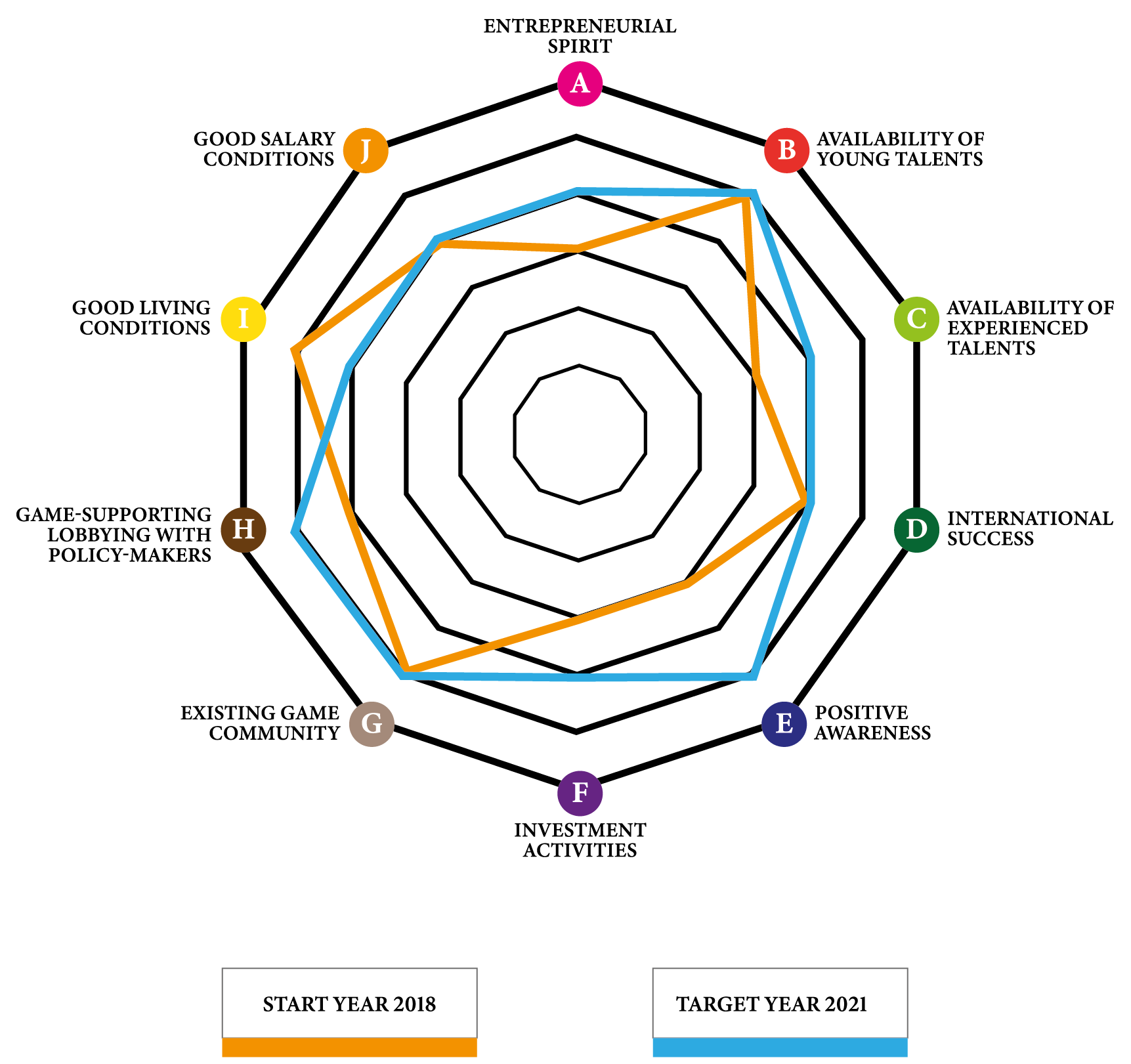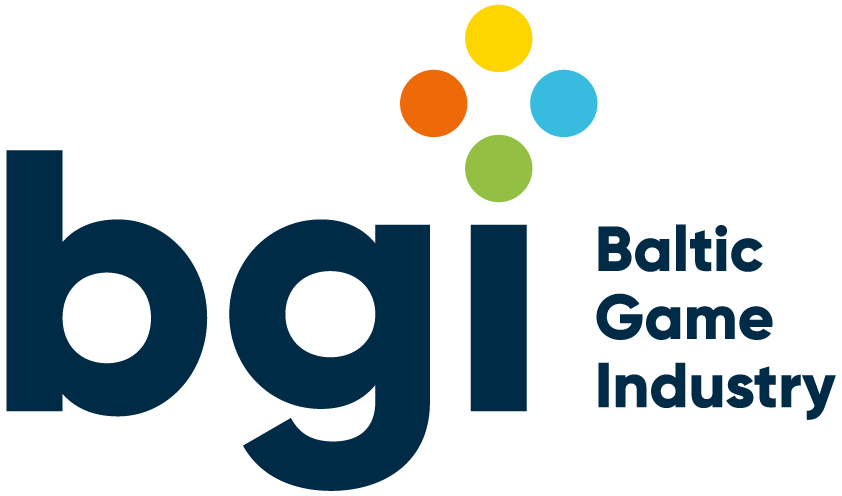Funding and Investment Berlin
1. Public Funding
A public funding scheme specially dedicated to the game industry has been introduced on a national level in 2019, the “German Games Fund” with 50 m € made available on an annual basis until 2023 (total 250 m €). The association of the German game industry helped design this fund. The aim is to foster game industry development in Germany and catch up to the game industries of other countries.
Previously, dedicated public funding schemes for the game industry existed only on the state level (Bundesländer).
a) Germany-wide
German Game Fund- Who: companies that are responsible for the development of a game can apply; headquarters or a branch has to be in Germany
- What: development of prototypes, production, further development of existing games
- Nature: Non-refundable grant
- Size: 50 m € per year until 2023 (total 250 m €)
- General conditions: culture test has to be passed, no violation of a law by the game, game has to be developed for public consumers, project cannot have started before application, minimum of 60% of the approved development costs has to be spent in Germany, grant can be cumulated with other grants, co-developments are eligible
- Conditions for prototypes: complete development costs have to exceed 30,000 €, grant amounts for 50% of approved development costs, maximum grant of 400,000 €, 80% will be paid at the beginning and 20% at the end of the prototype development, 12 months to complete the prototype, if the company has no game development references, SDS has to certify their expertise
- Condition for production: total costs have to exceed 100,000 €, costs between 100,000 € – 2 m € receive a grant of 50%, costs of more than 8 m € receive a 25% grant, costs between 2 m € – 8 m € receive 25 % – 50 % grants (linear correlation), grant will be divided into 4 payments (one at the beginning, two during production, one at the end)
- Geographical Scope: Germany
- Time frame: 12 months to complete prototype, decision at the latest 3 months after application
The German Computer Game Award (“Deutscher Computerspielpreis”) is supported biannually by the State of Berlin (alternating with Munich/Bavaria). It covers 15 categories, with a total sum of 590,000 €.
b) Berlin Regional Public support
Funding
In Berlin, both the project (a game) and the business (the company/studio) can seek funding from regional public agencies (where public authorities are in part or entirely the owners). However, the schemes that would work in principle for games rely heavily on the notion of “technological innovation” and on university degrees, again with the notion that universities are the entities that contribute innovative input to business/industry. It also seems that the types of businesses that are more easily understood by those with no expertise in evaluating a game have a better chance of being granted funding, e.g. publishers, distributors, e-sports, serious games, games with sports content, and tool developers (engines etc.). It is not clear whether this reflects a lack of applications from classic games studios, a lack of appreciation of the long-term assets of a company (such as the IP of a game), or the non-technological innovative character of a game.
Game as a cultural product/project
The “Medienboard Berlin-Brandenburg”, a joint venture of the two states of Berlin and Brandenburg, originally aimed to promote film productions and the regions as “film and media locations”. It now also includes “innovative audio-visual productions” and under this umbrella term also games. In this respect, the funding is designated for the promotion and support of a cultural product. It supports game projects with up to 50% of the development and production costs as a performance-based interest-free loan. The loan amount is typically between 25,000 € and 80,000 €, but there is no official limit (other than the state aid rule). It can be combined with other funds. In case of full repayment, the amount can be re-used for the next production.
- What: main film funding board, covers games to a smaller extent for the whole production phase (project-related), applications accepted 3x a year
- Nature: performance-based repayable interest-free loan on the basis of revenue incurred through the project, repayment obligation expires after 5 years
- Size & conditions: average loans per game project 50,000 – 80,000 €, up to 50 % of the total project costs can be funded
- Geographical scope: Berlin and Brandenburg
- Time scales: 5 years
- Other: if repaid, the sum can be re-invested on the same terms in a new project (success funding) – renewed application within 3 years of repayment
Game as a technical R&D project/product
There is no dedicated game funding in this area, however, in principle, if technological innovation is part of the project, a game studio could well apply for funding from the ProFIT project for sums of up to 400,000 € for R&D projects, ranging from 25-80% of co-sharing.
There have been lively discussions on how the IBB application rules define “innovation”. The Berlin Investment Bank (IBB) is an independent institution of the state of Berlin.
- What: technological R&D projects by companies & research institutions (as cooperation), or SMEs on their own
- Nature: non-repayable grants
- Size & conditions: up to 400,000 €, max. funding rate in innovation phase for industrial research 80% and for experimental development 40 % (research institutions in associations) or 25% (large companies in associations)
- Geographical scope: Berlin
- Time scales: not mentioned
- Other: application anytime
Games as a business
There is no specific public support dedicated to SME or start-ups from the games sector. However, business-related funding through the Berlin Investment Bank (IBB) and affiliated organisations (BBB and IBB-Bet) show a range of possibilities that in principle also are valid for games studios. The schemes range from grants, to loans, to VC and grants.
Grants (co-financing, or full, non-repayable)
As for the other German states, there is regional funding (GRW) in support of the regional economy and its businesses. In general, GRW support is given for investments (in assets or new staff). There is also support for R&D projects with the scheme ProFIT in the form of a grant (see R&D above). For technology start-ups, the only grant-based support is the German-wide EXIST scheme, which fosters start-ups started by university graduates.
None of them have been widely applied for by game start-ups or SMEs for fundraising, nor have many game SMEs been granted this support.
GRW (regional economy support)
- Who: existing companies as well as start-ups in the commercial sector with mostly transregional revenue
- What: settlement/extension investment, change of production processes, diversification, to create and secure permanent jobs
- Nature: non-refundable, performance-based grant
- Size & conditions: min. 10,000 €. for businesses in Sector C: 10% for large, 20% for medium, 30% for small enterprises. For business in Sector D: up to 200,000 € for large, 10% for medium, 20% for small enterprises. Increase in staff by 10%. Staff and assets are to be kept for at least 5 years.
- Geographical scope: Berlin – Sector D and Sector C
- Time scales: 3 years
- Other: application anytime
- Who: newly founded, technology-oriented companies striving for implementation of an innovation project, no older than 12 months
- What: early phase 1 = development of company in-house structure and preparations for innovation project (“anchor project”)
- Nature: grant (can be combined with an interest-free loan)
- Size & conditions: 50% of the expenditure is covered by a non-repayable grant; the remaining 50% can be covered by an interest-free loan. A mentor has to be involved with 5% equity.
- Geographical scope: Berlin
- Time scales: up to 1 year
- Other: application anytime, no combination with GWR scheme.
Internationalisation programme
- Who: SMEs in defined clusters that are of outstanding importance for structural change in Berlin
- What: participation in trade shows, exhibitions, conferences, exchanges, fashion shows and showrooms abroad of a mostly international and professional/technical nature unless such events primarily serve as direct sales events
- Nature: non-repayable, earmarked grant in the form of partial financing for up to 50% of the expenditure eligible for support
- Size & conditions: from 3,000 € to 12,000 € max. as support for each individual measure
- Geographical scope: Berlin
- Time scales: within 1 year up to 3 events
- Other: no combination with other schemes
- Who: young and established SMEs as well as start-ups
- What: Consulting/coaching fees
- Nature: non-repayable grants
- Size & conditions: partial funding with co-payment (up to 50%), max. of 8 coaching days per project, daily rate for a coach limited to a max. of 1,000 € in funding, limited to a max. of 20 coaching days per company
- Geographical scope: Berlin
- Time scales: n/a
- Other: application anytime, new since 2020: three coaches from Berlin’s game community are now available as dedicated coaches for game industry companies
- Who: mainly technology-orientated, legally independent, profit-oriented small and medium-sized enterprises (SMEs)
- What: project-based employment of graduates from universities/universities of applied science as innovation assistants
- Nature: non-repayable grant
- Size & conditions: up to 50% of the innovation assistant’s gross taxable salary, maximum salary costs of 40,000 € (which means support is limited to 20,000 €). No more than two innovation assistants can be supported at the same time.
- Geographical scope: Berlin
- Time scales: 1 year
- Other: application anytime, six to eight weeks processing time, cannot be combined with other staff-cost support schemes
Loans (low-interest, or with loans guarantees)
There are schemes for commercialising R&D products (ProFIT), for start-ups and young companies (Start or Innovativ), for seed phases (ProFIT Early Phase), and for internal activities.
- Who: cooperation between companies (large/SME) and a research institute, or SMEs on their own
- What: technical innovation phases, experimental/production development, market preparation and market launch
- Nature: low-interest loans, interest rate usually 3% – 7%
- Size & conditions: Up to 1 m €, max. funding rate 80% of costs
- Geographical scope: Berlin
- Time scales: up to 8 years
- Other: application anytime.
- Who: for start-ups, SMEs and freelancers (< 5 years in business)
- What: founding or take-over of a company and related costs (equipment, running assets etc.)
- Nature: low-interest loans in conjunction with an up to 80% bank guarantee by BBB Bürgschaftsbank zu Berlin-Brandenburg GmbH
- Size & conditions: up to 500,000 € (min. 5,000 €). Application is made via the applicant’s company’s bank, loan is paid out by the company’s bank, financing share of up to 100 %.
- Geographical scope: Berlin
- Time scales: 5 years
- Other: application anytime, fairly recent scheme
- Who: for start-ups, SMEs and freelancers who meet one of the specified innovation criteria
- What: investment (real estate, equipment etc.), internationalisation, pre-financing of commissions, running assets
- Nature: loan in conjunction with an up to 70% liability exemption
- Size & conditions: 100,000 € to 2 m €. Application is made via the applicant’s company’s bank, loan is paid out by the company’s bank, financing share of up to 100%, quarterly amortisation.
- Geographical scope: Berlin
- Time scales: 3 to 10 years
- Other: application anytime
Equity investment
The activities of the state of Berlin include venture capital for creative industries through their venture organisation IBB Beteiligunggesellschaft.
- Who: for start-ups, SMEs and freelancers that propose technological innovation or innovative business models, showing a high potential of scalable innovation or increase in value; belonging to one of these branches: creative industries, life science, industrial technologies, ICT
- What: investment (real estate, equipment etc.), internationalisation, pre-financing of commissions, running assets
- Nature: equity investment
- Size & conditions: first investments typically 250,000 € to 1 m € and follow-up investments up to 4 m € in return for minority equity holding; sound medium-term exit possibility; at least one other investor for the same amount requested
- Time scales: not specified (short/medium-term)
- Other: supporting on average 3-4 creative industry business per year. Supported projects: Hardscore Games, Softgames.
2. Private investment
In general, private investment in Germany has been slow when it comes to investing in games. Banks still have a very limited understanding of “games”, or think of it as “gambling” and the like, which means that loans are not readily approved. VC capital investment is generally too “hit”-driven and project-based (though the latter would constitute a good basis for an exit). Mostly, investment seems to involve lower sums, either through accelerator programmes, business angels or larger game studios, or higher sums which do not benefit the broader German game industry that is largely SME-driven.
The prevalent form of private financing in the Berlin game sector is through own capital (42% of companies). The traditional and in other countries more common type of private third-party investment is by publishers (only 2% of companies). However, this mostly applies to finished products or a vertical slice or prototype. The most widespread type of investment is however, personal/own capital.
There are some investors and business angels in and around Berlin who invest in games. Still, equity investment is also very low at just 7% of companies and amounts to only half as much as the public funding’s share. London Venture Partners have recently opened an new office in Berlin. They focus on investing in European companies in the digital games sector at seed stage with investment volumes ranging from 50,000 € to 500,000 €.
Berlin and Brandenburg also have a business angel association, the Business Angels Club Berlin-Brandenburg e.V. with their independent venture capital organisation Berliner Business Angel Fondsgesellschaft mbH (BBAF).
The fact that only 1% of the companies receive bank loans is an indication, as suggested above, that the banks have reservations about the game sector.
Examples for investors
- Who: an international venture capital firm that invests across multiple stages, but in particular seed and early stage
- What: medical technology, messaging apps, technology
- Nature: equity investment
- Size & conditions: from 250,000 € to 10 m €, with an average of 2.5 m €
- Geographical scope: no specific area. The company head office is in Berlin, and they have offices in Munich, Istanbul and Palo Alto.
- Time scales:cContinuous support, decisions every 6-8 weeks
- Other: founded in 1997, they have invested in more than 90 companies with a focus on European companies with global ambitions. Supported project: Peak Games.
- What: dedicated to the digital games sector, seed stage
- Nature: equity investment
- Size & conditions: from 50,000 € to 500,000 €
- Geographical scope: European companies
- Time scales: start-up phase
- Other: they have recently opened an office in Berlin. The company’s approach applies deep, sector specific knowledge and operational experience to analyse and benchmark, allowing a fast, focused, direct and objective view to be formed.
______________________
Status: 2020




